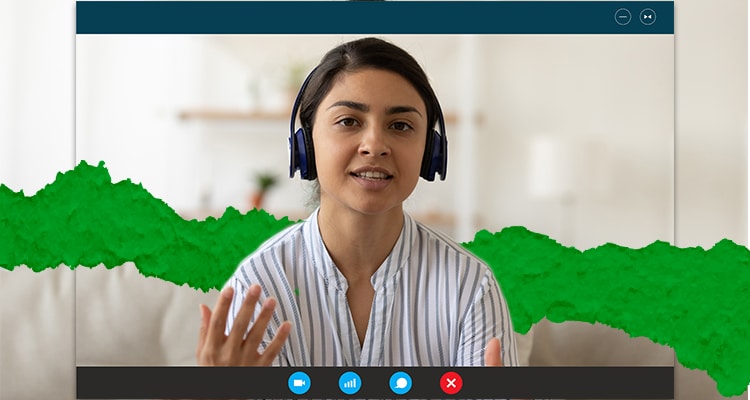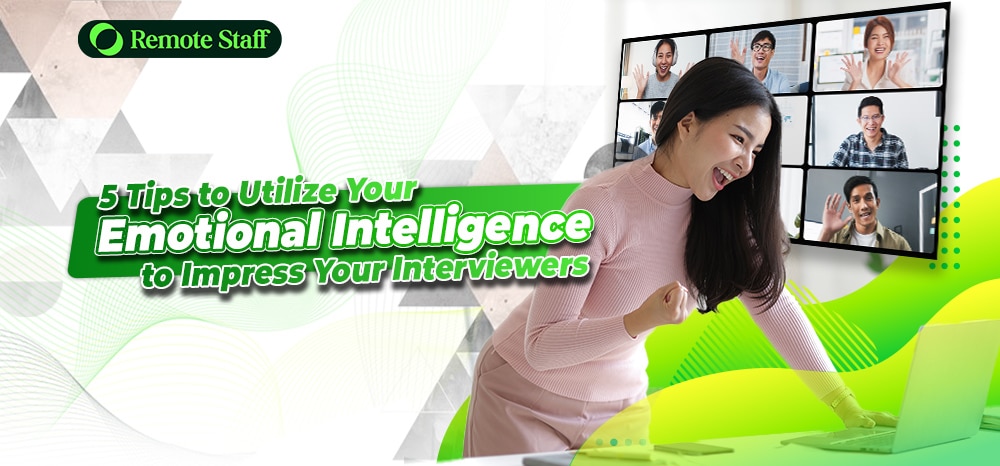In the age of Artificial Intelligence (AI), emotional intelligence (EI) is very much in-demand.
What exactly is emotional intelligence? In a nutshell, it’s how you manage and understand your emotions and other people’s.
Many companies value emotionally intelligent applicants – since they can quickly join or build collaborative teams based on trust, help resolve workplace conflicts, and take criticism well.
Thus, if you’re looking to impress your interviewers in your job interview, showing high emotional intelligence can help. Here’s how you do it:

The Importance of Emotional Intelligence in the Workplace
So, why do you need emotional intelligence if you already have a great resume and technical skills?
These days, employers are looking for more than just those two. Hard skills are still essential, but companies also need employees who can quickly adapt to local or foreign teams and handle pressure.
This is where your emotional intelligence comes in.
It enables you to quickly establish trust with your team, avoid and prevent workplace conflicts, and be resilient in the face of criticism.
Another benefit of emotional intelligence at work is it helps you land leadership roles. Emotionally intelligent employees possess empathy, the ability to coach and motivate others, and self-awareness, something every aspiring team leader should have.

Practice Active Listening
The simplest way to display emotional intelligence and impress your interviewers is by actively listening to them.
Active listening goes beyond simply looking at your interviewer and nodding along. It means paying close attention to what they’re saying, reflecting on their meaning and intention, and giving an honest and well-thought-out response.
This skill helps you answer emotional intelligence-related interview questions like: “Who inspires you?” and “What are your values?” Additionally, active listening lets you build better rapport with your interviewer.
How do you demonstrate active listening? First, remove all distractions from your desk so you can focus entirely on your screen and interviewer. Next, maintain constant eye contact with your interviewer and look out for any non-verbal cues they show.
Reflect on your interviewer’s words and use them as a springboard for open-ended questions. Finally, remain patient and neutral when listening and responding to them.

Be Authentic
It’s typical for many interviewees to feel stressed and nervous during their interview, especially if it’s their first time. However, this can cause you to appear stiff and quiet to your interviewer.
To avoid this, don’t be afraid to show some emotion when conversing with them.
So long as it’s authentic, it’s best to smile at your interviewer to show that you’re enthusiastic and determined to land the job.
That said, be careful not to appear too contrived, as this could make you look phony and lower your chances of getting hired.

Highlight Your Efforts to Improve Yourself
One of the most dreaded interview questions for many applicants is: “What are your weaknesses?” After all, you’re trying to convince your interviewer to hire you; mentioning your flaws might do the opposite.
A great way to answer this is by being honest about your weaknesses, emphasizing your efforts to improve them, and citing examples of your progress. Doing this helps earn your employer’s respect and shows you’re constantly striving to better yourself.
Another thing to remember when discussing your weaknesses is to never EVER lie about them. When your employer finds out, you could face termination or worse.

Show You’re a Team Player
When discussing your previous work and accomplishments, it’s tempting to overemphasize your contributions to team projects.
However, showing you’re a team player can be just as valuable as having the right set of technical skills.
Thus, when talking about a project’s success, don’t forget to credit the efforts of your previous co-workers.

Ask Questions About the Company and Its Values
This tells your interviewer you’ve done your research about the company and that you really prepared for the interview.
Additionally, asking questions lets you see whether their company values align with yours.

Ace Your Next Interview With the Power of Emotional Intelligence
Today, technical skills are just one factor that interviewers look for in applicants. Aside from this, another skill that can impress your interviewers is emotional intelligence. You can do this by following the tips mentioned above.
If you think you’re ready to show your emotional intelligence in an online job interview but don’t know where to look, head on over to Remote Staff. Our jobs list contains many available positions, so you won’t run out of options.
So, what are you waiting for? Sign up with us today here. Good luck!

